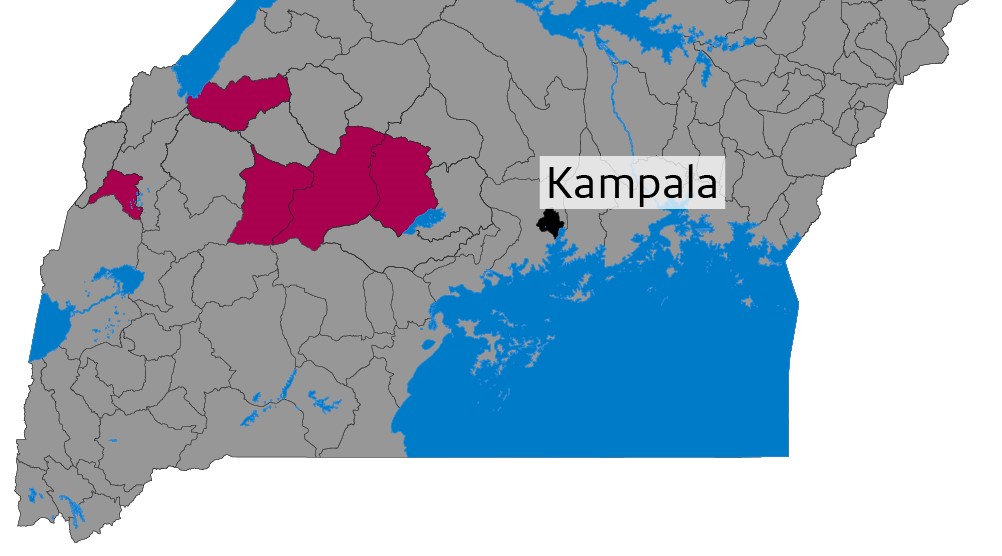There is an Ebola outbreak in several regions of Uganda that are also frequented by tourists. RIVM therefore asks medical professionals to be alert to symptoms that could indicate Ebola among people who have travelled to Uganda, and to request diagnostics to rule out or confirm Ebola. Travellers returning from these areas are also advised to be alert to symptoms that could indicate Ebola. However, the risk of patients with this disease in the Netherlands remains low.
Phase 2
Various alert levels are used to scale up responses to Ebola. This helps healthcare workers who may be involved in treating a potential patient in the Netherlands to have a better idea of what they are facing. As of today, the alert level for Ebola has been raised to phase 2. That means there is an outbreak of Ebola somewhere in the world, with a realistic risk that there may be a patient in the Netherlands. The risk is real, but remains low.
Outbreak in Uganda
On 20 September 2022, Uganda’s Ministry of Health and WHO reported that there was an Ebola outbreak in Uganda. Since the start of the outbreak, doctors have diagnosed 54 people with Ebola, 19 of whom died. In addition, there are 20 probable Ebola cases among individuals who died before a sample was collected. More than 1,000 contacts from that group have been found so far.
Districts
People have been infected in the districts of Mubende, Bunyangabu, Kyegegwa, Kasanda and Kagadi. The Bunyangabu region in particular attracts many tourists who visit Uganda. Anyone who travels to these areas is strongly advised not to eat bushmeat, not to touch any animals, and to avoid contact with confirmed or possible patients or deceased individuals. The latest travel advisory from the Ministry of Foreign Affairs is available (in Dutch) at https://www.nederlandwereldwijd.nl/reisadvies/uganda.
Regions in Uganda where Ebola has been detected in humans.
Symptoms
Ebola is a viral haemorrhagic fever that makes people very ill. The disease often starts with fever, headache and muscle pain, but can progress to bleeding in the body. Outbreaks have occurred in Africa, such as in Congo in 2018-2019 and in West Africa in 2014-2015. During these outbreaks, about half of the people who became infected with the virus died.
Have you been in Uganda in the past 3 weeks? And do you have symptoms such as fever, muscle pain or headache? If so, call your GP to discuss your symptoms and your trip to Uganda. Your GP can consult with the Municipal Public Health Service (GGD) as needed.
